Login
Subscribestem cells

Regulators OK Clinical Trials Using Donor Stem Cells
Kerry Grens | Feb 5, 2017 | 2 min read
Japanese health officials approve human experiments to treat macular degeneration with a cell therapy derived from induced pluripotent stem cells.

Study: MicroRNA, Retroviruses Coordinate to Influence Pluripotency
Joshua A. Krisch | Jan 13, 2017 | 2 min read
Removing a specific miRNA from stem cells may induce the expression of endogenous retroviruses that enable the cells to form extra-embryonic lineages.
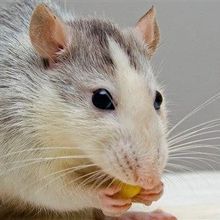
Enhancing Stem Cells Helps Regenerate Damaged Teeth in Mice
Diana Kwon | Jan 9, 2017 | 1 min read
Scientists repurpose an Alzheimer’s drug to enhance the ability of stem cells to repair dental damage in mice.

Induced Pluripotent Stem Cells Show Signs of Donor Age
Ashley P. Taylor | Dec 12, 2016 | 3 min read
iPSCs created through the reprogramming of human somatic cells retain genomic marks of the donor’s age.
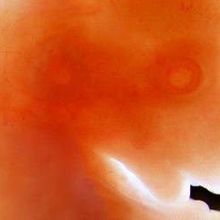
Famed Mammalian Embryologist Dies
Jef Akst | Dec 1, 2016 | 2 min read
Andrzej Tarkowski’s research laid the groundwork for future advances in cloning, stem cell research, and in vitro fertilization.

How to Track Cell Lineages As They Develop
Kelly Rae Chi | Dec 1, 2016 | 7 min read
Sequencing and gene-editing advances make tracing a cell’s journey throughout development easier than ever.

Q&A: Improving Cardiac Cell Therapy
Kerry Grens | Nov 15, 2016 | 4 min read
The Scientist caught up with cardiac stem cell researcher Mark Sussman to get his thoughts on the American Heart Association’s Scientific Sessions meeting.

Studying “Stone Man Syndrome,” Scientists Inadvertently Improve Cellular Reprogramming
Ben Andrew Henry | Oct 25, 2016 | 2 min read
While studying a rare genetic disease, researchers discovered a signaling pathway linked to the efficiency of reprogramming somatic cells into stem cells.

Week in Review: October 17–21
Jef Akst | Oct 20, 2016 | 2 min read
Report finds that pathologist involved in anonymous defamation case committed multiple acts of misconduct; growing eggs from stem cells; neutrophils’ role in metastasis; convergent evolution in birds

Donor Stem Cells Improve Cardiac Function
Kerry Grens | Oct 12, 2016 | 2 min read
After a heart attack, monkeys given induced pluripotent stem cell–derived cardiomyocytes show more regeneration in the organ, but with risks.

An Evolutionary History
Mary Beth Aberlin | Oct 1, 2016 | 3 min read
Celebrating 30 years and a resurrection

Stem Cells Made Waves in Biology and Medicine
Karen Zusi | Oct 1, 2016 | 6 min read
Since their introduction to the lab, pluripotent stem cells have gone from research tool to therapeutic, but the journey has been rocky.

Thirty Years of Progress
The Scientist | Oct 1, 2016 | 1 min read
Since The Scientist published its first issue in October 1986, life-science research has transformed from a manual and often tedious task to a high-tech, largely automated process of unprecedented efficiency.

Toward Preventing Transplant Rejection with Immunologically Matched Stem Cells
Ruth Williams | Sep 15, 2016 | 3 min read
Matching the immunological characteristics of donor retinal cells to those of the recipient can reduce the chance of rejection.

Using CRISPR to Edit Genes in Induced Pluripotent Stem Cells
Kelly Rae Chi | Sep 1, 2016 | 8 min read
Tips on how to surmount the challenges of working with CRISPR to manipulate genes in human stems cells to study their function in specific diseases or to correct genetic defects in patient cells.
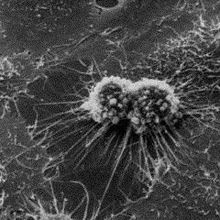
Stem Cells Drive Cancer Risk in Mice
Jef Akst | Aug 26, 2016 | 2 min read
Mutations that arise during stem cell division contribute to the development of cancers in a variety of organs, according to a study.
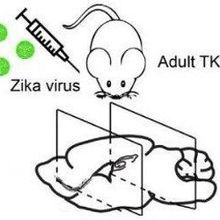
Zika Infects Adult Neural Progenitors Too
Marcia Triunfol | Aug 18, 2016 | 2 min read
A mouse study shows that the virus has tropism for adult proliferative neural progenitor cells and immature neurons.
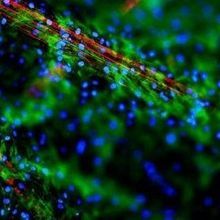
NIH Reveals Plan to Fund Human-Animal Chimeras
Kerry Grens | Aug 4, 2016 | 2 min read
The public gets to weigh in before the US government lifts its ban on such research.

Nailing Down HAR Function
Katherine S. Pollard | Jul 31, 2016 | 1 min read
A remaining challenge in the study of human accelerated regions (HARs) is establishing their specific functions during development and other biological processes.

Will Organs-in-a-Dish Ever Replace Animal Models?
Tanya Lewis | Jul 19, 2016 | 4 min read
Increasingly sophisticated tissue organoids can model many aspects of disease, but animal studies retain a fundamental role in research, scientists say.